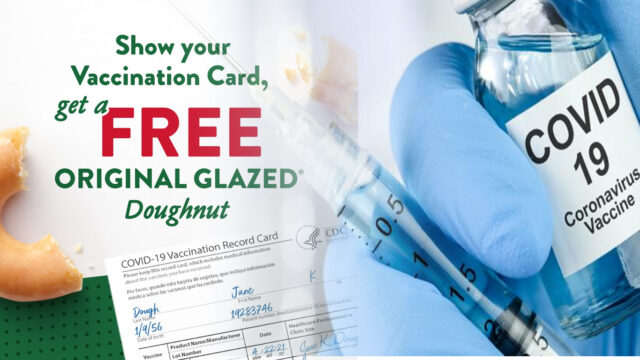The advantages of getting vaccinated against COVID-19 — to be specific, protection against a perilous infection — ought to be clear by this stage in the pandemic. On the off chance that that isn’t adequate inspiration, think about the following initiatives. Organizations across the United States and more are offering free merchandise and other stuff to individuals who get COVID shots. The advantages incorporate complimentary rides, doughnuts, cash, arcade tokens, and even weed. Specialists in conduct inspiration say that offering motivations isn’t the best or cost-productive approach to expand antibody take-up. However, that hasn’t prevented the gifts from accumulating.
In Cleveland, the Market Garden Brewery is offering 10 cents to the first 2021 individuals who show a COVID-19 vaccine certificate. “Indeed, you read that right,” the brewery says on its site, “Ten Cents.” At the Greenhouse of Walled Lake, a clinical weed dispensary in Michigan, anybody 21 and more established who gets a COVID antibody can get a prerolled joint until the month’s end. Chobani gives free yogurt at some sites. Also, Krispy Kreme said Monday that for the remainder of the year, it would give one frosted donut each day to any individual who confirms a COVID-19 vaccination.
As vaccinations sped up across the United States, “We settled on the choice that said, ‘Hello, we can uphold the following demonstration of bliss,’ which is, on the chance that you drop by, show us a vaccine card, get a donut any time, every day if you decide to,” the organization’s CEO, Michael Tattersfield, disclosed to Fox News. The Krispy Kreme activity is no connection to the “vaccinated doughnuts” that were sold a month ago by a bread kitchen in Germany, decorated with plastic needles. It likewise doesn’t qualify vaccinated Americans for unlimited doughnuts, as Tattersfield appeared to infer in his Fox News meet — only one every day, as the organization notes on its site.
In an advertisement, it is calling “Tokens for Poke’ns,” Up-Down, a chain of bars highlighting vintage arcade games, is offering $5 in free tokens to visitors who present a finished vaccination card. Up-Down, which has six areas in five Midwestern states, is stretching out the proposal to visitors who visit inside three weeks of their last dose. David Hayden, Up-Down’s correspondences administrator, said he thought of the thought while sitting in a perception room in the wake of accepting his vaccination. “It’s something we expected for such a long time,” he said, adding that the symbolic giveaway was a method of giving clients another thing to anticipate after being vaccinated.
Different motivations target individuals in weak gatherings. Uber, for example, has consented to give 10 million free or limited rides to seniors, fundamental laborers, and others in nations across North America, Europe, and Asia to assist them with getting to vaccination centers. “Governments like these activities since they assist them with getting more immunizations in more arms,” said Chris Brummitt, a representative for the organization in Singapore.
That might be valid, however, the study of inspiring individuals to get vaccinated is perplexing. “Behavioural nudges” that depend on logical perceptions might be a more savvy approach to convince individuals to get vaccinated against COVID-19 than straight-up impetuses, said Hengchen Dai, a teacher of the board at the University of California, Los Angeles. In a new report, Dai and her associates found that instant messages could help take-up of flu vaccinations. The best messages were outlined as suggestions to get shots that were at that point saved for the patient. They additionally looked like the sort of correspondence that patients hope to get from medical services suppliers.
Jon Bogard, an alumni understudy at UCLA who added to the examination, said that policymakers ought to continue with alert on initiatives because they can at times blow up. One issue is that the missions are costly, he said. Another is that individuals accepting shots could consider a to be initiated as a sign that “antibodies are less secure than they truth be told are.” A superior other option, Bogard said, could be passing out “low-individual worth, high-social-esteem” objects — like stickers and identifications — that tap into a bigger feeling of “social inspiration and responsibility.” There seems, by all accounts, to be no deficiency of such giveaways whirling around the globe medical clinics and vaccination centers.









